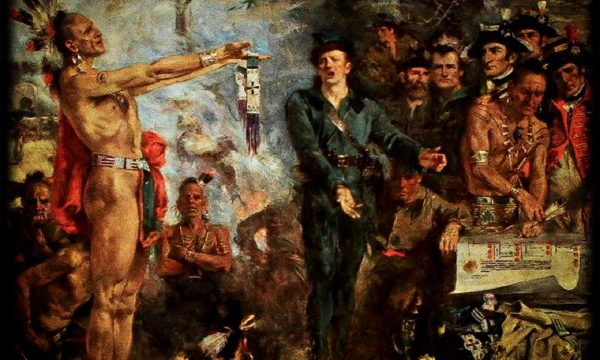Topic Modeling Reflection
Kai Colorado I analyzed a corpus consisting of three sets of council transcriptions from meetings between Native American tribes, Europeans, and Euro-Americans. In Mallet, I generated fifteen (15) topics across the corpus of 292 documents. On the first iteration of the process, I attempted to generate ten (10) topics, but the weight each topic was the same. The majority of the 15 discernable topics were pertinent to the relations between parties or the organization of such. For example, the topic that I labeled “Boundaries” included the words “treaty, line, lands, boundary, river, etc.” The distinctions between indigenous topics and Eurocentric topics are also visible across the key terms. The category “European Officials” houses words such as, “general, commissioners, agent, government” and other words associated with Eurocentric standards of national organization.…
